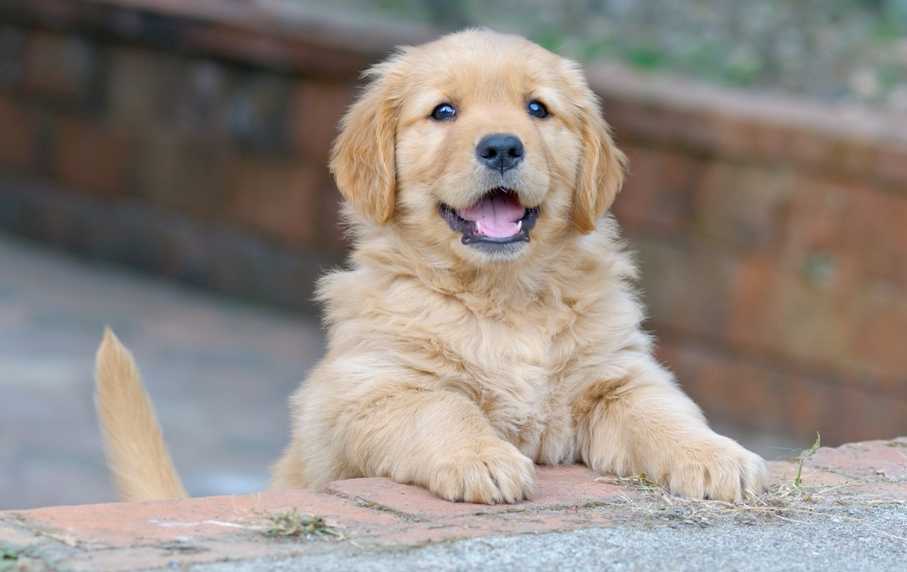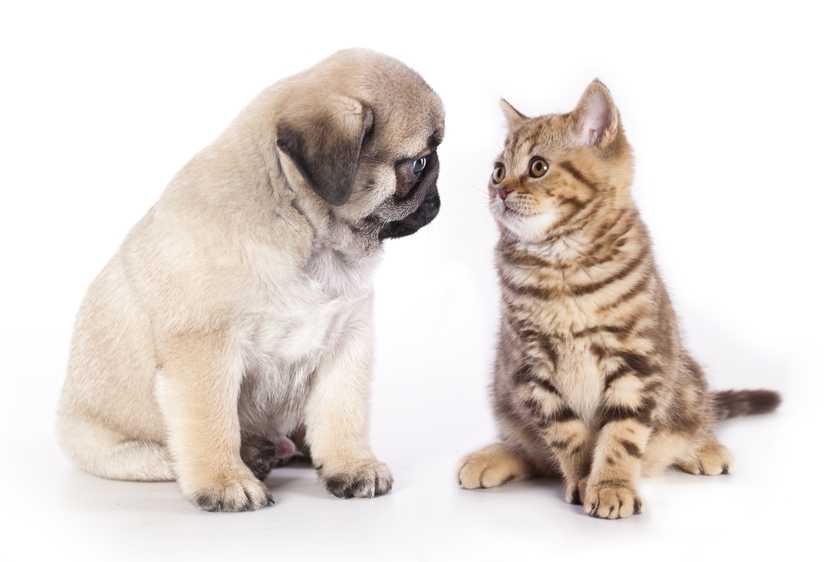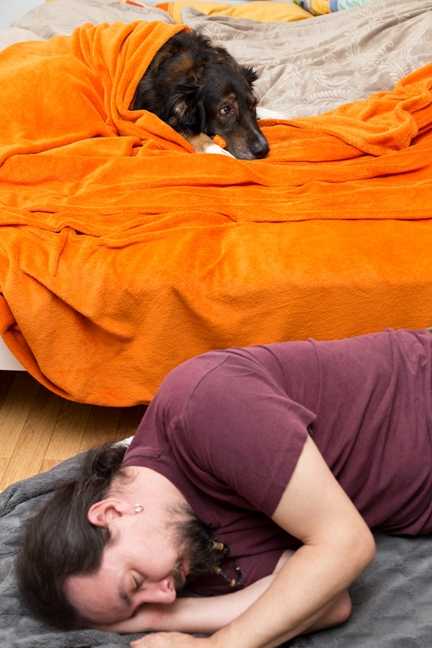How to Prepare For Your Puppy’s Arrival and Enjoy His First Days With You
So you’ve thought long and hard about getting a dog, discussed it with the whole family, and now you are ready to take the plunge. You’ve decided that you want a puppy rather than an adult dog, and it’s almost time for you to collect him. There’s a lot to think about if you’re becoming a new puppy owner; and when you bring your puppy home for the first time, and you want the preparations to be so well-planned that everything goes without a hitch.
Not very likely! But it IS good to do everything you can to be ready for your new arrival. So here are some tips to help you prepare for your puppy’s arrival, and enjoy his first days with you.

Before the Puppy Arrives
Make sure you’ve decided on your basic house rules. Things like where the dog will eat and sleep, whether or not he’s allowed on the furniture or the beds, and whether any rooms are permanently off-limits need to be decided before he arrives. Making up the rules as you go along or changing your mind later on will only confuse the puppy; the rules need to be clear from the start.
If you haven’t already decided on a name for him, get thinking! You should have seen him at least once before you bring him home, so use the interval between to make a shortlist of favourites, even if you can’t quite whittle it down to one yet. And don’t delay too long before deciding once he’s home. You’ll have to call him something from the start, after all, and dogs get used to being called by name surprisingly quickly. So unless you want your puppy to bear the moniker “Hey, puppy”…
What Your New Puppy Will Need
You’ve probably enjoyed buying some of the things your puppy will need, but one of the best things you can do for his welfare is to make sure he has a calm and quiet place in the house which he can regard as his private space. Coming to a new house is a daunting experience for a small puppy, and he needs to have somewhere he can feel safe. Of course he will want to play and explore, but he needs to relax and sleep too. So plan this in advance, and make it one of the first things you show the puppy when he arrives. The space needs to be quiet, but not isolated, as dogs are sociable animals and should live as part of the family.
Becoming a new puppy owner means quite a bit of new kit too.
A bed
This can be soft (in which case you need to make sure it won’t slide around the floor), or hard with a washable cushion.
A crate
This should be used for travelling (mine stays in the car), but it can also be used indoors as a bed. Some dogs, especially if they are shy or nervous, like the safety of a crate.
Food and water bowls
Make sure they have a non-slip base.
An adjustable collar and lead
The collar should be loose enough to allow you to slip three fingers underneath. Make sure you check it regularly, and adjust it as the puppy grows. To comply with the law, before you take your puppy out in public, you will need to attach an identity disc to the collar. The disc must show your name and address, and it is advisable to add your telephone number as well; but do not put your dog’s name on it. A very large and strong dog may need a harness specially designed to give you extra control. Some breeds of dog must be muzzled in public.
Toys
Make sure they are not so small that he could swallow and choke on them. Puppies tend to destroy toys quite fast, so consider giving him empty cereal and egg boxes (and anything else plastic or cardboard) to play with too. As long as it’s not something that can hurt or injure him, he’ll enjoy chewing and tearing them to bits – and you’ll be a bit richer too.
Treats for training
Never give your dog cooked bones, as they are brittle and can splinter and damage your dog’s mouth and digestive tract. They can also get stuck and cause choking.
Cleaning materials
A spray cleaner is essential for cleaning up puppy accidents. You may need dog shampoo and puppy training pads (if you intend to use them). You can buy a brush and comb too, but you probably won’t need them much until the puppy begins to get his adult coat.
Settling In
A puppy will settle much better into his new home if he has something familiar from his old one. Your breeder should give you a scent blanket on which his mother has slept to take with you; but to make sure you can always take one with you when you first visit him, and ask the breeder to let you have it back, duly scented, when you collect him. Put it in the puppy’s new bed when you get home, so that he can sleep on it. You will find that still being able to smell his mother in his new home will make everything seem much more familiar, and more like home to him.
Your Puppy’s Food
Your puppy’s breeder will tell you what kind of food the puppy is having at the time you reserve him. A small puppy’s diet should never be changed abruptly – in fact, dogs of any age should always be introduced to a new diet gradually. If you have another brand you prefer, and which you want the new puppy to eat too; leave it for a few days, and then make the change gradually over the next 7 – 14 days. Your puppy’s breeder will be able to give you a supply of his regular food to help you make a smooth transition. Otherwise, make sure you have a good supply of his current food before he arrives, especially if you are buying it online, and it has to be delivered.
Puppy–Proof Your House…
Becoming a new puppy owner means assuming responsibility for its welfare. Puppies are very playful and inquisitive, and will want to chew everything they can get their teeth into. So make sure that you keep anything dangerous or unchewable out of his reach. That means removing sharp, dangerous or breakable objects, making sure plants and chemicals are out of reach, and keeping him away from electrical wires or gadgets. The floor of his main living space must be easy to clean.
…and Garden
You must make sure your garden is secure before your puppy comes home. Don’t underestimate the ability of a determined puppy (i.e. one who has seen something he wants to chase) to escape through what seem impossibly small holes. Dogs can also scale remarkable heights when similarly stimulated, so make sure your fence is high enough to keep him inside. You must also make sure the puppy is not left alone in a garden with a swimming pool or pond.
On the Day of Arrival
It’s best to collect the puppy in the morning, so that he has as much time as possible to settle down and familiarise himself with his new home before bedtime. If possible take someone with you to attend to him, otherwise you will find he wants to sit on your lap to feel secure. Bring something to clean up with in case the puppy is carsick, and if it is a long journey, be prepared to stop on the way to give him a break and allow him to relieve himself. Try to keep the journey as smooth and un-traumatic as possible, as a bad first experience can put him off car travel for life.
Even if you intend he should travel in a crate in future, don’t leave him alone in it on this first journey. It’s important he shouldn’t feel completely abandoned and alone for the whole trip.
Show him his bed when he arrives; and the garden (of course!), but don’t bother showing him the whole house. He’s already having enough new experiences for one day, and it’s better if he gets to know the house gradually over the next few days.
Begin a Regular Routine
Becoming a new puppy owner means establishing a routine; so start getting the puppy used to the household routine from the first day. Routine makes a dog feel secure – my Milly is liable to take industrial action if I ever deviate from hers! Along with your puppy’s diet, your breeder should have given you details of when the puppy is accustomed to have his meals; and you should try to follow them as far as you can, at least at first.
Your puppy may not want to eat at first, as he tries to absorb the enormous changes he is experiencing. A temporary loss of appetite is not unusual, and he should start eating again once he starts to get really hungry.
Young puppies should be taken outside immediately after eating, as they will usually want to relieve themselves. The same applies after play or sleep. A small puppy does not have full control over his bladder or bowels; so don’t ignore the signs that he needs to go out. You will soon learn to spot them (a dog will usually circle when he is about to poo). Praise him whenever he performs in the right place, and expect him to have accidents. Gradually his control over his bodily functions will become stronger, and he will be able to go for longer periods without needing the loo.
Meeting Other Dogs in the Family
If you already have another dog, allow him to get to know the puppy gradually, on his own terms. Don’t leave the puppy unsupervised with him at first, and make sure they are separated at night. Some dogs resent what they see an intruder on their space and privileges, and can be jealous and even hostile. Usually this is temporary, and the two will settle down together in time.

Meeting the resident dog should be easy…
Make sure you pay lots of attention to the older dog, and give him precedence in everything over the puppy. This will calm any incipient feelings of rejection, and confirm his superior position in the household. When he feels secure once again, he will be more accepting of the new family member and more prepared to be friends. Adult dogs can be remarkably tolerant of “puppyness”, and allow the nipper much more leeway than they would give another adult.
Meeting Your Cat
If you have a cat, then don’t expect him to take to the puppy on sight. The cat’s first instinct will probably be to disappear, and it will take a few days before he is prepared to recce the new intruder. The puppy will probably want to play with him; which will not endear him to the cat, as cats usually consider puppy play to be distressingly rough and disagreeable.

Meeting the cat might be trickier
Help the cat to settle by putting his bed out of reach of the puppy, preferably off the floor. Cats are reassured and feel safe when they are higher up. Make sure the cat can eat and drink in peace, without the puppy disturbing him.
The cat will learn to tolerate the puppy in time, although he may never like him. But depending on the breed of your dog, they may even end up being (rather uneasy) friends. My cat Polly has slept with my Cavaliers for years.
The First Night
This is often the most daunting part of becoming a new puppy owner, both for you and for the puppy. It will probably be the first night has had to sleep alone, without his littermates or his mother being nearby. His scent blanket will be especially comforting now, but he is still quite likely to cry at first. Make sure he is going to be warm enough, or he will wake later in the night and cry because he is cold. It’s important to start as you mean to go on, so don’t let him sleep in your bedroom unless you intend it to be a permanent arrangement – you will only be making it harder for both of you later. It shouldn’t take more than a few nights for him to get used to the new order.

When it comes to where the puppy is to sleep, make sure you start as you mean to go on…
Make sure you are up early on his first morning to take him outside before breakfast, and continue doing so for the next few weeks. An adult dog doesn’t need to go out immediately you appear in the morning (mine don’t, it’s not their routine), but a young puppy does. At around 4 or 5 months, my Poppy sat outside the French windows refusing to go out onto the lawn alone. “You don’t need to put me outside like a baby any more – I’m big now”, she was trying to tell me. “I’ll go out with the others”. And she did.
The First Few Days
Becoming a new puppy owner is exciting, but it’s best to let the puppy settle in for a week or so before inviting all your friends over to meet him. You will probably want to take him to your vet for a health check, and to organise his vaccinations. Some puppies will have had their first vaccination before they leave; personally I think 7-8 weeks is too young, and I prefer to wait until 12 weeks. The vet’s fee (charged on the initial visit) should cover both vaccinations, so there is no monetary benefit to it either. Remember that he shouldn’t go out on walks until 2 weeks after his second vaccination, as the protection they give is not effective until then.
Legal and Other Stuff
The puppy has to be microchipped, which by law must be done before he is 8 weeks old; so it should have already been done by the breeder. Your vet will read and record the microchip on your first visit. You will need to update the microchip company (also by law, usually Petlog or Identibase (formerly Anibase)) with your details (for a fee).
If your puppy is pedigree, or a crossbreed from pedigree parents, your breeder should have provided you with a puppy pack containing all his paperwork. If he is registered with the Kennel Club, there will be a registration document and perhaps a pedigree chart. You will need to inform the Kennel Club of the change of ownership, for which a fee is charged. You can also order a pedigree chart at the same time, if you don’t already have one. Registration is entirely at the discretion of the breeder; as the owner of the dam, only they can do it. Many breeders will endorse the puppy’s papers against breeding and/or export: this is to protect him from exploitation by unscrupulous breeders.
You may want to insure your puppy; if so, you should arrange that too (get some quotes first; there are now many providers of pet insurance). Make sure you cover includes everything you expect – policies differ greatly. If you prefer, you can do this before you bring the puppy home, but bear in mind that a registered dog is entitled to 5 weeks free insurance from the Kennel Club.
Enjoy Yourself…
Getting a puppy will bring great changes to your life, but they should all be positive ones. Above all you should enjoy your puppy’s company and watching him grow up. In becoming a new puppy owner you’ve made a great decision, so celebrate it!



